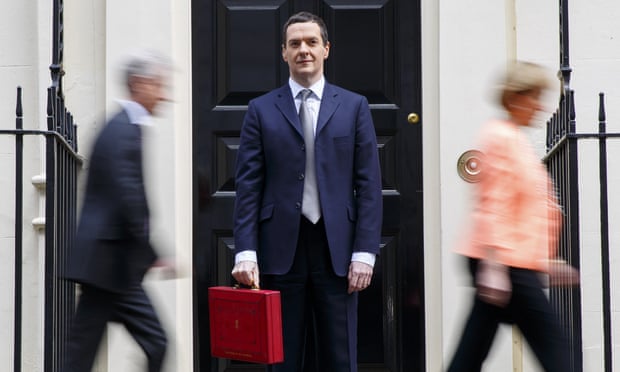The price of Osborne’s failure is being paid by the most vulnerable | John McDonnell
Labour’s top team were impressive on Budget Day.
Jeremy Corbyn shone in the Commons Chamber with an impassioned speech, saying this was a budget with “unfairness at its very core… paid for by those who can least afford it”.
Of the Chancellor, George Osborne, he asked: “Why can’t he fund the need for dignity for disabled people?”
Instead, in 2020-21, the government’s own figures show one-third of all the “savings” Osborne expects to make in that year will come from cuts to the payments to those with disabilities.
Shadow Chancellor John McDonnell was equally impressive when he appeared on the BBC’s Budget show on BBC2.
He destroyed (Tory) political editor Laura Kuennsberg, whose questioning proceeded from a false premise that’s a very old chestnut: “But John McDonnell, what would you have cut?”
His answer, explained very slowly and carefully, as if to a child – and repeated when she asked again – was that Labour would not have raised the Income Tax threshold for rich earners, so the cut to sickness benefits would not have been necessary.
Oh, and Labour would have invested in the economy – so the UK would not have been in the awkward situation Osborne has created for it.
Mr McDonnell has explained that situation in some detail, in a feature for the Guardian. It begins as follows:
George Osborne delivered a budget built on failure. He failed on closing the government deficit. He has failed on reducing the government debt. His politically precious but economically nonsensical target for a budget surplus at the end of this parliament is remaining intact only as a result of creative accounting, shuffling around billions in corporation tax revenues.
There is no dead cat big enough for George Osborne to throw that distracts from his failure in this budget. His last-minute U-turn on the sugar tax has the appearance of a political manoeuvre, rather than a credible plan to address a serious public concern. Labour agrees with the chancellor that tackling obesity is a public health priority. Yet he needs to answer why he cut public health funding by £200m.
The official forecasts presented alongside the budget make for grim reading. Growth has been revised down, far more than was widely expected, and so too has wage growth, which means we will be earning less as a nation.
Household borrowing is set to rise further. Business investment has been revised down. Our borrowing from the rest of the world is expected to reach eye-watering new heights.
Forecasts for productivity, which is about how much we produce in each hour we work, have slumped. The Office for Budget Responsibility (OBR), which produces the official forecasts, has taken the exceptional step of saying that productivity growth will be 7.5% lower between 2010 and 2020 than it previously thought.
The gap between how much the UK produces per hour and the rates in comparable countries such as the US, Germany and France is now the biggest for a generation. Without productivity growth, too many of us will end up in low-paid, insecure work.
There is an extraordinary contrast between these new figures and the sunny prospects offered by Osborne just a few months ago in November’s autumn statement. From bragging then that he was getting better results than expected, he flipped at the new year to warning of an ominous “cocktail of threats” in the global economy.
It is true that there are warning signs out there, from the Chinese slowdown to the emerging markets debt bubble and the slump in commodity prices. But he was warned about these back in the autumn. Many, including myself, said there were warning signs ahead.
Osborne did not listen. He should have shored up the economy against the gathering storm with investment, as a growing consensus amongst economists and international organisations such as the IMF are now recommending. His failure to do so means our economy is now more, not less, exposed to economic headwinds.
The price of his multiple failures are being borne by the most vulnerable.
Join the Vox Political Facebook page.
If you have appreciated this article, don’t forget to share it using the buttons at the bottom of this page. Politics is about everybody – so let’s try to get everybody involved!
Vox Political needs your help!
If you want to support this site
(but don’t want to give your money to advertisers)
you can make a one-off donation here:
Buy Vox Political books so we can continue
fighting for the facts.
Health Warning: Government! is now available
in either print or eBook format here:
The first collection, Strong Words and Hard Times,
is still available in either print or eBook format here:







